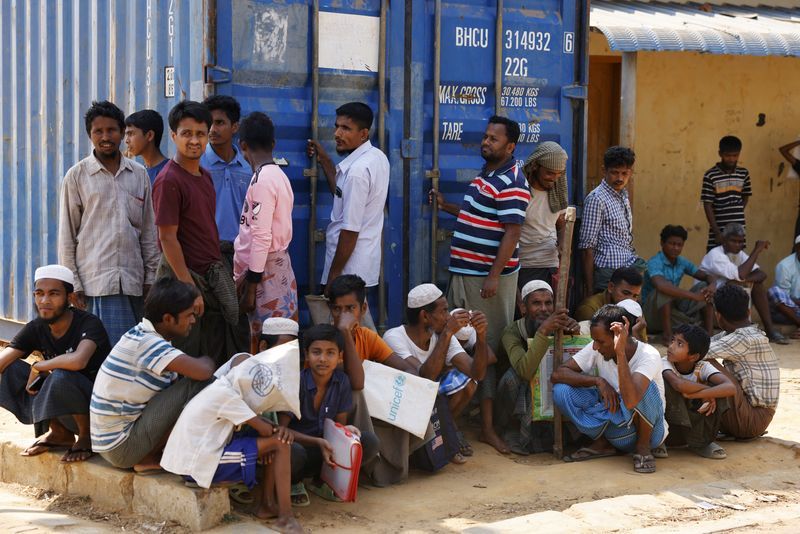
The view through a viewfinder shows buses parked to protect impeached South Korean President Yoon Suk Yeol from a possible second arrest attempt at his official residence in Seoul, South Korea, January 8, 2025. REUTERS/Kim Hong-Ji
SEOUL (Reuters) -South Korea's impeached President Yoon Suk Yeol faces a new and potentially more robust attempt to arrest him for insurrection after a top investigator vowed to do whatever it takes to break a security blockade and take in the embattled leader.
Acting president Choi Sang-mok urged on Wednesday authorities to "do their best to prevent any injuries to citizens or physical conflict between government agencies" while executing Yoon's arrest warrant.
Protesters supporting and opposing Yoon braved freezing temperatures to stage rallies on the streets around the presidential compound on Wednesday after a court re-issued a warrant on Tuesday to arrest him.
The Presidential Security Service (PSS) has been fortifying the compound this week with barbed wire and barricades using buses to block access to the residence, a hillside villa in an upscale district known as Korea's Beverly Hills.
Yoon is under criminal investigation for insurrection over his failed attempt to impose martial law on Dec. 3, a decision that stunned South Korea and prompted the first arrest warrant for a sitting president.
He also faces an impeachment trial in the Constitutional Court.
One of Yoon's lawyers said the president could not accept the execution of the arrest warrant because it was issued by a court in the wrong jurisdiction and the team of investigators formed to probe the incumbent leader had no mandate to do so.
Yoon Kab-keun, the lawyer, also denied suggestions by some members of parliament that Yoon had fled the official residence, saying he had met the president there on Tuesday. He said they were "malicious rumours" intended to slander Yoon.
On Tuesday, Oh Dong-woon, head of the Corruption Investigation Office for High-ranking Officials (CIO), which is leading the investigation, apologised for failing to arrest the president last week after a six-hour standoff with hundreds of PSS agents, some of whom were carrying firearms, and military guards at the compound.
"We'll do our best to accomplish our goal by thoroughly preparing this time with great determination that the second warrant execution will be the last," Oh told a parliament committee.
He declined to specify how many days the court had given before the new arrest warrant expired.
Oh did not object when members of parliament called for tough action to overpower the presidential guards and military troops inside the compound, but he declined to discuss what options were being considered to achieve that.
TACTICS
Various scenarios reported in local media included mobilising police special tactical units and heavy equipment to push through the barricades, followed by more than 2,000 police to drag out presidential guards, taking as long as three days if necessary to wear down presidential security agents.
Shin Yul, a Myongji University professor who has followed the political turmoil, said police had lots of experience with the tactical operations that were likely being considered. But safety should be a top priority, especially for protesters, he said, noting the risk of gunfire in a potential clash.
Although police have a clear advantage in terms of resources such as helicopters to drop in tactical units, force should not be the only option considered, said Lee Yung-hyeock, a Konkuk University professor specialising in law enforcement.
He cited "cognitive warfare" such as using loudspeakers to persuade PSS agents they could face personal repercussions by obstructing justice that could mean the end of their careers and possible criminal records.
Near Yoon's residence, Lee Jae-eun, 25, was among the hundreds of protesters demanding his arrest, saying he should either walk out and cooperate with authorities before being "dragged out" and arrested.
But Chung Woo-jae, a 25-year-old supporter of Yoon, said he was entitled to the security service's protection.
"The president Yoon has been elected by our country, by the people of this nation rightfully, and he deserves all the protection until he is proven guilty," Chung told Reuters.
(Reporting by Jack Kim, Cynthia Kim, Ju-min Park, Joyce Lee and Joyce Zhou; Editing by Ed Davies, Neil Fullick and Ros Russell)


































